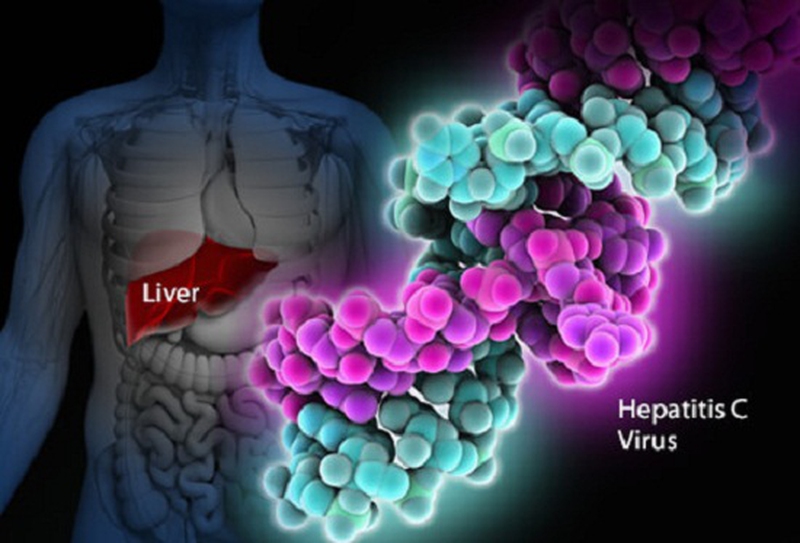Hepatitis is a disease characterized by the inflammation of the liver. This is commonly caused by heavy use and abuse of alcohol, toxins and some drugs. The disease can also develop from some forms of bacterial and viral infections that have directly affected liver.
Hepatitis has three common types, namely Hepatitis A, Hepatitis B and Hepatitis C. In this article, detailed information about Hepatitis C will be discussed.

What Is Hepatitis C?
Hepatitis C is a result of an infection from the Hepatitis C virus or HCV. The disease can either come as “acute” or sudden, or it can be “chronic”, also known as a long-developing syndrome in the body. It is important to note that Hepatitis C can be transmitted and its severity has different levels and degrees. One can show symptoms of mild illness that can last for a few weeks, or it can fall into a severe illness that affects the liver for the rest of one’s life.
Acute vs. Chronic Hepatitis C
“Acute” Hepatitis C occurs in the first six months when a person is exposed to the HCV and is considered a short-term Hepatitis C infection. In most cases, an acute Hepatitis C infection can still lead to chronic HCV infection.
“Chronic” Hepatitis C infection happens when the HC virus has cultivated and stayed in the person’s body on a long-term basis. It can last life-long and can lead to severe liver damage, cancer of the liver and/or cirrhosis of the liver.
Hepatitis A, Hepatitis B vs. Hepatitis C
Although the three diseases mainly affect the liver, they differ primarily on the types of virus that cause the disease. It is notable, however, that the three diseases may show the same symptoms. Thus, it is important to know "what is Hepatitis C" and how it differs from the other two. The three types of Hepatitis differ in the types of virus that cause them, how they are transmitted and how they generally affect the liver.
Hepatitis A is commonly an acute condition and in most cases, does not fall into a chronic condition. This can be prevented through vaccination and routine checkup.
Hepatitis B may begin as an acute infection. In most cases, the virus does not leave the body which would result in life-long and chronic liver diseases. Like Hepatitis A, Hepatitis B can also be prevented through vaccination.
Hepatitis C may also start as an acute infection, but in most cases, the virus remains in the person’s body which leads to long-term and life-long chronic liver diseases. For Hepatitis C, there is no available vaccination as others yet.
One should note that if a person has a history of any type of Hepatitis, he/she can still be prone to other types of Hepatitis if not vaccinated, except for Hepatitis C.
What Are the Symptoms of Hepatitis C?
Prevention is always better than cure, but knowing how to identify early on is the second best way to avoid long-term diseases. In the case of Hepatitis C infection, in most cases, the signs and symptoms do not show until the liver has been damaged enough by the infection. Because of this, Hepatitis C is considered a “silent” infection. But you can pay attention to the following signs and symptoms to know "what is Hepatitis C".
Jaundice or yellow discoloration of the eyes and skin
Urine is dark in color
Ascites or the build-up of fluid in the abdomen
Hepatic encephalopathy or slurred speech, drowsiness and confusion
Spider angiomas or blood vessels that resemble spider webs on the skin
Swelling of legs
Loss of appetite and weight loss
Easily fatigued
Itchy and easily bruised skin
Bleeding
Hepatitis C infection starts in an acute stage which may not be diagnosed right away due to lack of signs and symptoms. When symptoms do start to show, common symptoms are fever, nausea, muscle pains and jaundice. Although no vaccination for Hepatitis C infection is yet available, some cases have complete clearance from the virus through antiviral treatment. In some cases, acute Hepatitis C does not become chronic.
Can Hepatitis C Be Transmitted or Spread?
Hepatitis C is a disease that can be transmitted. Take note that the disease can only be transmitted, not spread. As Hepatitis C can cause severe liver problems, it is important to know how it can be transmitted. The following increases risks of Hepatitis C transmission.
Blood transmission either through used or not sanitized needles or syringe, and personal hygiene items such as razors and toothbrushes.
Getting a tattoo or piercing with needles that are not sanitized and/or recycled.
Sexual contact. Risks increase if one has HIV, STD, or more than one regular partner.
Direct skin exposure to blood that is infected with HCV.
Risks increase when one’s mother has HCV when you were born.
Hepatitis C cannot be spread through holding hands, kissing, being sneezed at by someone with HCV, breastfeeding, and sharing utensils. Also, Hepatitis C virus cannot be transmitted through mosquito bites or other insects.
Extra Precautions to Prevent HCV Transmission
Blood spills, whether dried or wet, can be infectious and therefore should be wiped immediately using sanitary gloves and household bleach. Be careful not to make skin contact with the blood.
Hepatitis C virus can survive room temperature and outside of the body for as long as three weeks.
After knowing "what is Hepatitis C" and other related information, it is important to have a keen observation in one’s health, especially when symptoms show on the later stages of liver problems. Although the disease can be treated via antiviral therapy, it can still lead to severe liver damage. For treatment of the disease, watch the following video.
View All Comments /Add Comment